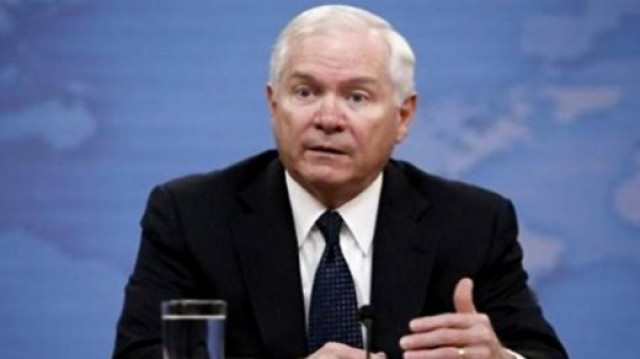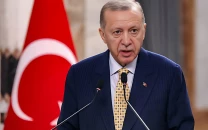Gates sees change in ‘strategic calculus’
US Defence Secretary Robert Gates defended Pakistan on Sunday, saying the country was actively targeting militants.

“What I see is a change in the strategic calculus in Pakistan,” he said on ABC News’ “This Week with Christiane Amanpour” programme.
“They are more and more partnering with us and working with us and fighting these insurgents and 140,000 soldiers (are) in northwestern Pakistan fighting some of the same insurgents we are.”
His defence of Pakistan comes after new questions about links between the Inter-Services Intelligence (ISI) and Taliban leaders.
The New York Times said some 92,000 classified documents made public by the WikiLeaks website showed ISI agents and Taliban member met “in secret strategy sessions to organise networks of militant groups that fight against American soldiers in Afghanistan, and even hatch plots to assassinate Afghan leaders.”
Gates acknowledged that the allegations were “a concern.”
“There’s no question about it,” he said. “But I would say that, again, we walked out on Pakistan and Afghanistan in 1989 and left them basically holding the bag. And there is always the fear that we will do that again. And I believe that’s the reason there’s a certain hedge.”
And he said Pakistan had shown it was now committed to tackling Taliban fighters by raiding militant safe havens in South Waziristan and Swat.
“And so the Pakistanis going after any of these groups, I believe, overall, helps us in what we’re trying to accomplish, both with respect to Afghanistan and with respect to al Qaeda.”
The documents released by WikiLeaks a week ago detail serious allegations against the ISI, that the agency was linked to an assassination plot on Afghan President Hamid Karzai — which never came off — attacks on Nato warplanes, a plot to poison the beer supply of Western troops and the 2008 Indian embassy bombing.
Pakistan has denied the allegations and criticised the leak of the documents as irresponsible and inflammatory. On Sunday, Ambassador to Washington, Husain Haqqani insisted Pakistan had no interest in supporting the Taliban. “We have had more attacks in Pakistan in the last two years than any other country,” he said on CNN’s “GPS” programme.
“Now, quite clearly, the Taliban are very clear that we are the enemy. Why should then we lack clarity that they are all our enemy?”
He acknowledged that “Pakistan’s history has given a lot of people reason for cynicism,” but echoed Gates’s remarks, noting that Pakistanis fear the United States will abandon the region as it did after the Soviet withdrawal from Afghanistan.
“But let us be very clear,” he said. “Pakistan does not share or appreciate the Taliban’s vision for Afghanistan or for Pakistan. “We want to make sure that we enter the 21st century as a modern Muslim democratic nation, and we do not wish for Afghanistan anything we do not wish for Pakistan.”
Published in The Express Tribune, August 2nd, 2010.




1725099588-0/BeFunky-(41)1725099588-0-208x130.webp)














COMMENTS
Comments are moderated and generally will be posted if they are on-topic and not abusive.
For more information, please see our Comments FAQ